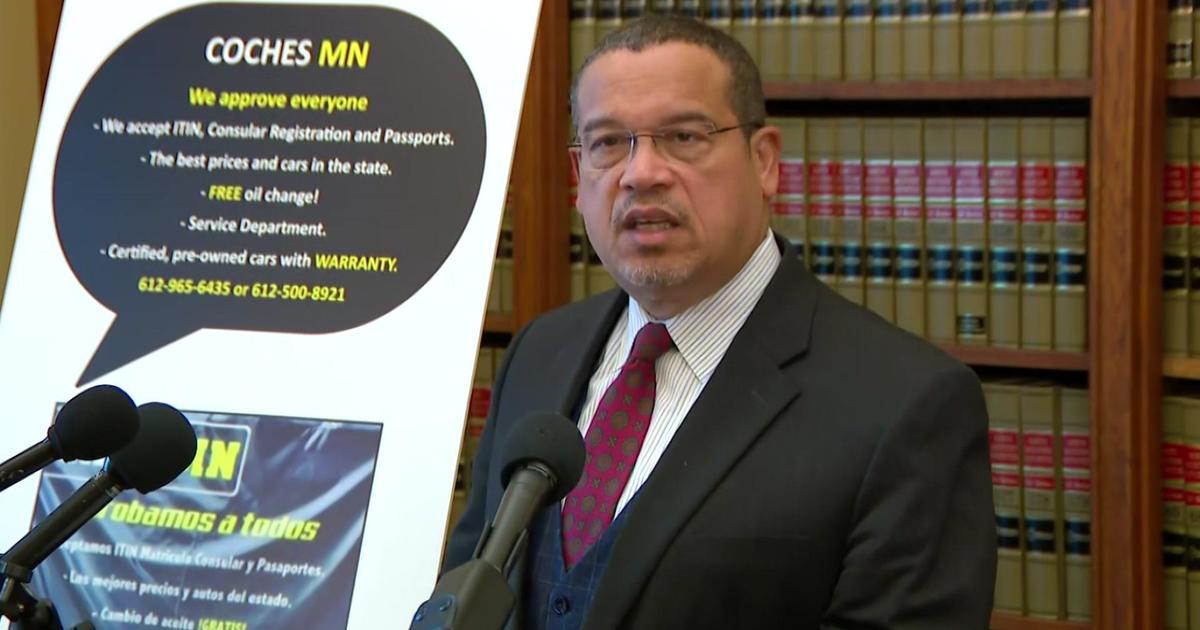The Questions To Ask And The Plans To Make As Coronavirus Cases Multiply
ST. PAUL, Minn. (WCCO) -- Across the world, more than 80,000 people have contracted the Coronavirus. Only 14 cases have been confirmed in the U.S. but health officials feel that number is destined to grow.
According to a CBS News report, Dr. Nancy Messonnier, director of the CDC's National Center for Immunization and Respiratory Diseases, told reporters Tuesday, "It's not so much a question of if this will happen anymore, but rather more of a question of exactly when this will happen and how many people in this country will have severe illness."
From your children's school, to your place of work, to your own home, the virus has the potential to interrupt everyday lives in some way. And having a plan is what health experts want people to create.
"We don't want people to panic," Kris Ehresmann, Director of Infectious Disease at the Minnesota Department of Health, said. "We do want them to take action so that they are prepared and they feel comfortable having kind of thought things through before we start to see cases of disease in Minnesota."
That could mean having enough non-perishable food at home if you get sick and can't leave.
"We live out in the country so if (the Coronavirus) hit I suppose my wife and I would just stock up on food and just stay in the house," John Rogness, of Rochester, said.
If schools have to close due to an outbreak, experts say parents should have a plan for missing work while businesses must prepare for staff to also be out sick.
"What do you need to do to make sure your organization, your business, your agency is prepared to continue to function in the event of a large outbreak," Ehresmann said.
Many organizations already have plans in place.
"Pretty much everybody in my company can work from home if we need to. So if that becomes a concern that's probably what I would do," Nick Rogness said.
Other suggestions include making sure that people with prescription medicine maintain a solid supply in case you can't leave your home. "Make sure that you're not down to the last two tablets," Ehresmann said.
When it comes to protecting yourself from catching the virus, the advice is mostly common sense. People should wash their hands often, especially if they've been frequenting public places. Experts also suggest limiting physical contact with others, including handshakes.
Also, the Department of Homeland Security has a checklist people can follow before or during a pandemic.
A spokesperson for the Minneapolis Public Schools released a statement about its plan saying:
"From H1N1 to the measles, Minneapolis Public Schools (MPS) has demonstrated its ability to manage illness outbreaks in a coordinated, strategic way that prioritizes the health of its students, families and staff. MPS has been monitoring COVID-19 closely over the last few months and meeting regularly to develop plans.
"MPS Health Services is in direct communication with Hennepin County Epidemiology and the MN Department of Health to stay up-to-date on the best ways to keep students and staff safe. In the coming days, we will be providing additional information laying out our plans. We will also keep our website regularly updated at https://health.mpls.k12.mn.us/illness_and_communicable_disease."
Mary Langworthy, supervisor of Student Health and Wellness for St. Paul Public Schools, said:
"At this time, the risk of becoming sick with COVID-19 is low, including for students and staff in Saint Paul Public Schools. As always, we recommend our students and staff stay home when sick, cover their cough and practice good hand hygiene. These recommendations are especially important during cold and flu season.
"The District Student Health and Wellness Department sends out weekly COVID-19 updates to SPPS Licensed School Nurses and Health Assistants. We follow recommendations and guidelines from the Minnesota Department of Health and the CDC. Earlier this month the District also sent information to all staff members via email on how to prevent the spread of infectious illnesses.
"We continue to monitor the situation and are prepared to appropriately respond if or when an outbreak occurs."



